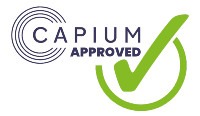As a self-employed GP or consultant you should be able to reduce your tax bill by deducting business expenses before calculating your trading profit.
If you’re a locum or specialist travelling from location to location, it’s all too easy to end up out of pocket for travel and food. And you can’t keep your professional knowledge up to date without journals, association memberships, training courses and so on.
There are certain principles that apply, however, and the rules around what counts as a business expense (what is ‘allowable’) aren’t always intuitive.
Looking at principles first, HMRC insists that business expenses must be “wholly and exclusively for the purposes of the trade, profession or vocation”.
Over the years, this has tripped a lot of people up as they try to claim five nights for the entire family in a hotel where they happen to be speaking at a conference for two hours on Wednesday evening.
If you can’t say, hand on heart, that you had to spend that money to do your job, and bought it only to do your job, HMRC might well dispute your claim.
It would be great if there was a reliable list of what is allowable and what isn’t. Unfortunately, it’s never worked that way. The best you’ll get is guidance from HMRC which relies heavily on words such as ‘likely’, ‘in most cases’, ‘may, ‘might’… You get the idea.
A big part of our role as accountants and advisers is to interpret the rules and the legal precedents to help you make sensible judgements. In our experience, what matters is that you’ve thought any claims through, kept evidence to support them – and don’t push your luck.
Examples of allowable expenses for doctors
As a doctor, you’ll usually be pretty safe to claim claim tax relief on things like:
● memberships fees for the BMA, GMC or similar
● subscriptions to professional journals
● specialist medical equipment
● postage, stationery and office supplies.
These are all things that, arguably, you need to do your job and which you wouldn’t or couldn’t use outside a surgery or clinical context.
Training courses aren’t on the list, you’ll note, and that has been controversial over the years. HMRC’s view has tended to be that professional development is more about you and your long-term career in the medical profession than it is about your current role. On those grounds, it generally fails the “wholly and exclusively” test.
A case might be made for the cost of training that is very specifically related to a particular job, but you might decide it’s more trouble than it’s worth to argue the case with HMRC.
Travelling for work
Another item missing from the list above is travel and subsistence. That’s because it’s perhaps the most complicated aspect of the whole subject of allowable expenses.
For one thing, HMRC does not consider anybody’s commute to their “usual place of work” to be a business expense. So, if you’re generally based in a particular surgery or healthcare setting, you won’t be able to claim petrol or public transport costs for getting there and back.
You won’t be able to claim for “normal meals” either – only the cost of meals you have to eat out because you’re working away from home. So, for example, if you have to stay in a hotel and don’t have the option to put together your usual (no doubt very healthy) lunchbox, or because you have to set off on a pre-dawn train and can’t eat breakfast at home.
When it comes to fuel, doctors who use their own cars to travel for work can claim tax relief on the basis of mileage, as long as they aren’t being reimbursed through an employer or trust.
One final thought on good practice: you should keep notes and receipts for anything you’re claiming, from petrol to car parking fees. It’s easier than ever to do that using cloud accounting software such as Xero, Quickbooks or Sage, which allow you to record receipts with your phone.
Talk to us about tax relief on business expenses for GPs.


